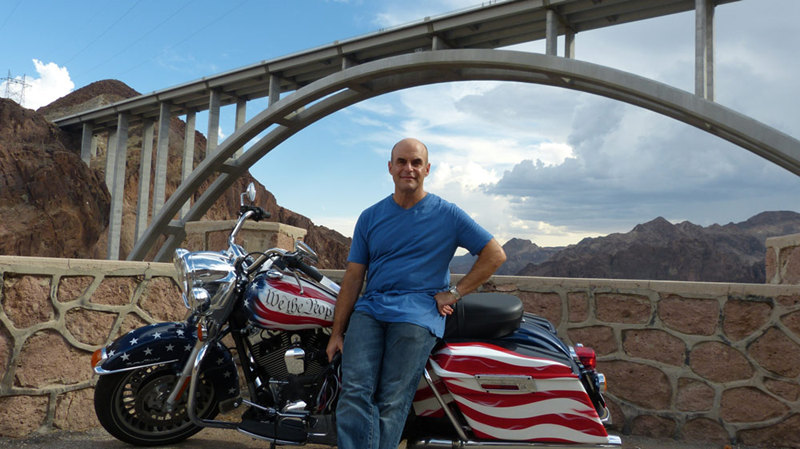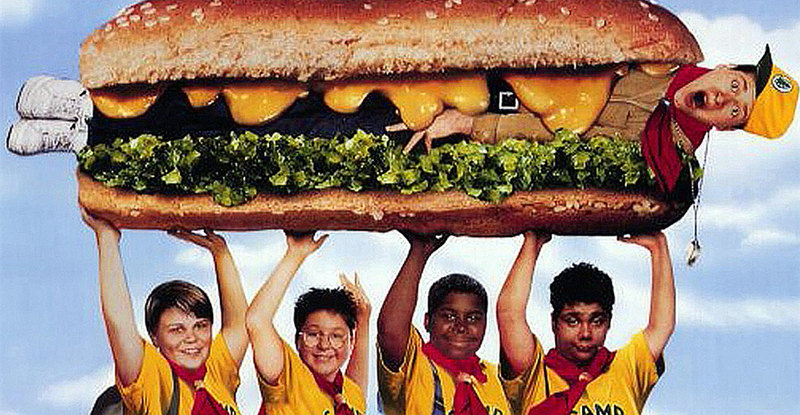After British actor Dirk Bogarde’s rise to stardom in the light comedy “Doctor in the House” in 1954, he began alternating starring roles in comedies and dramas, supplementing the humorous “Doctor” series with more-serious things like “The Spanish Gardiner,” “A Tale of Two Cities,” “Song without End,” “The Servant,” “Darling,” “The Fixer,” “Death in Venice,” and “The Night Porter.” Plus another one, the one reviewed here, a kind of Western action adventure set in modern Canada, “Campbell’s Kingdom,” from 1957.
Adapted for the screen by Robin Estridge and Hammond Innes from Innes’s novel and directed by Ralph Thomas (the “Doctor” series, “A Day to Remember,” “The 39 Steps,” “Deadlier Than the Male”), the English Rank Organization’s “Campbell’s Kingdom” has all the grand spectacle and overt melodrama we’ve come to associate with Hollywood epics, which is apparently what Rank was trying to accomplish. They wanted to create a film of magnified yet familiar proportions that would remind audiences that England still had a movie industry in the mid Fifties worthy of worldwide recognition. I’m not sure Dirk Bogarde was the right man for the heroic central character, though, as he still seems more than bit lightweight for the part.
As for a plot, the screenwriters came up with a typical good guys vs. bad guys scenario. Bogarde plays Bruce Campbell, a young man told by his doctor he’s got only six months to live, who comes to Canada for some final peace and quiet and to claim an inheritance, a large valley of land known as Campbell’s Kingdom, from his recently deceased grandfather. Old man Cambell died clinging to the belief that there was oil in his valley, oil he never found. In the meantime, a mining company is building a hydroelectric dam that will soon (in a matter of a few weeks) flood the valley, putting any hope of finding oil out of the question. The villain of the piece is the guy building the dam, Owen Morgan (Stanley Baker), a crook who will stop at nothing to get the job done, no matter how unscrupulous the means. And with his company of goons, he can get plenty unscrupulous.
So, young Bruce must either find oil in a hurry or give up the valley to water. He chooses to go for the oil, thus earning him the enmity of most of the citizens of the little town of Come Lucky, because a lot of them at one time believed in old man Campbell’s vision of oil and invested their life’s fortune in his scheme to find it. When the oil didn’t pan out, they lost all their money. Now they see another Campbell trying to fulfill the family dream while they could be making money building the dam, and they aren’t too happy about it.
Anyway, this time it’s the evil industrialists against the independent loners instead of the evil cattle barons against the independent homesteaders. Along the way, Campbell meets the beautiful Jean Lucas (Barbara Murray), who helps run the local hotel and helps even more as a love interest in the story; Boy Bladen (Michael Craig), a surveyor who thinks there might actually be oil in the valley; and James MacDonald (James Robertson Justice), an rig operator who agrees to drill for Campbell’s possible oil, for a percentage of the profits if they find it, of course.
“Campbell’s Kingdom” is a decent adventure yarn, with some beautiful location shooting, the Italian Alps standing in for the Canadian Rockies. For what on the surface seems a pretty trite and predictable story, it develops some good dramatic action, romance, and interest in the main characters. Bogarde at least looks the part of a dashing hero, although he doesn’t always act like one, spending most of his screen time a glum, brooding, dying man. The corny ending doesn’t help much, either. Nonetheless, tensions mount acceptably, suspense builds, and excitement ensues. Not bad for a non-Western Western.
Now, here’s the thing the filmmakers don’t want us to think about too much: On the one hand, we have the bad guys, who are trying to build a hydroelectric dam and create a lake out of the valley. On the other hand, we have the good guys, who are drilling for oil that will result in the construction of oil derricks all over the valley. Uh, which ones are the heroes again and which ones the villains?
Video:
The VCI video engineers digitally restored the movie and transferred it in its native aspect ratio, 1.66:1, to high-definition Blu-ray using a VC-1 codec and a single-layer BD25. They’ve cleaned up the picture pretty well, and there’s nary a scratch or speck in sight. The engineers appear to have applied a small amount of filtering from time to time, as well, to erase the most egregious areas of noise and excessive grain because some shots do look slightly more well scrubbed–flat and soft–than others. Nevertheless, there is more-than-adequate definition and detailing in a lot of other scenes, especially in mid and long shots. The Eastman colors are fairly realistic, too, although nothing ever jumps off the screen at you, and facial tones can too often stray toward yellowish pinks.
Audio:
The disc offers lossy Dolby Digital 2.0 and 5.1 audio tracks, my choosing the 5.1 because it seemed to open up the sound a bit more than the 2.0 did and provide a fuller, smoother aural experience. Mostly, the 5.1 shows its stuff in the musical accompaniment where we hear more bloom on the notes. So, don’t expect much in way of directional activity, just a general ambience enhancement. While one notices a touch of shrillness at the high end, the midrange is fine for dialogue, and there is very little background noise.
Extras:
We don’t get much on this bare-bones Blu-ray. We get English as the only spoken language, English subtitles, twelve scene selections, and a widescreen theatrical trailer. Still, it’s about all we might expect from a film most folks probably have never heard of.
Parting Thoughts:
I doubt that anybody is going to mistake “Campbell’s Kingdom” for an Oscar or BAFTRA award winner, yet it is a reasonably satisfying action yarn if you discount some of the acting. Dirk Bogardein 1957 hadn’t yet honed his acting chops well enough to pull off such a serious dramatic role, particularly one that requires him to be a stalwart but dying hero. Indeed, the biggest star of the film is the mountain scenery. However, if you look at the film as a British version of an American Western, any shortcomings tend to disappear behind the rugged peaks.


